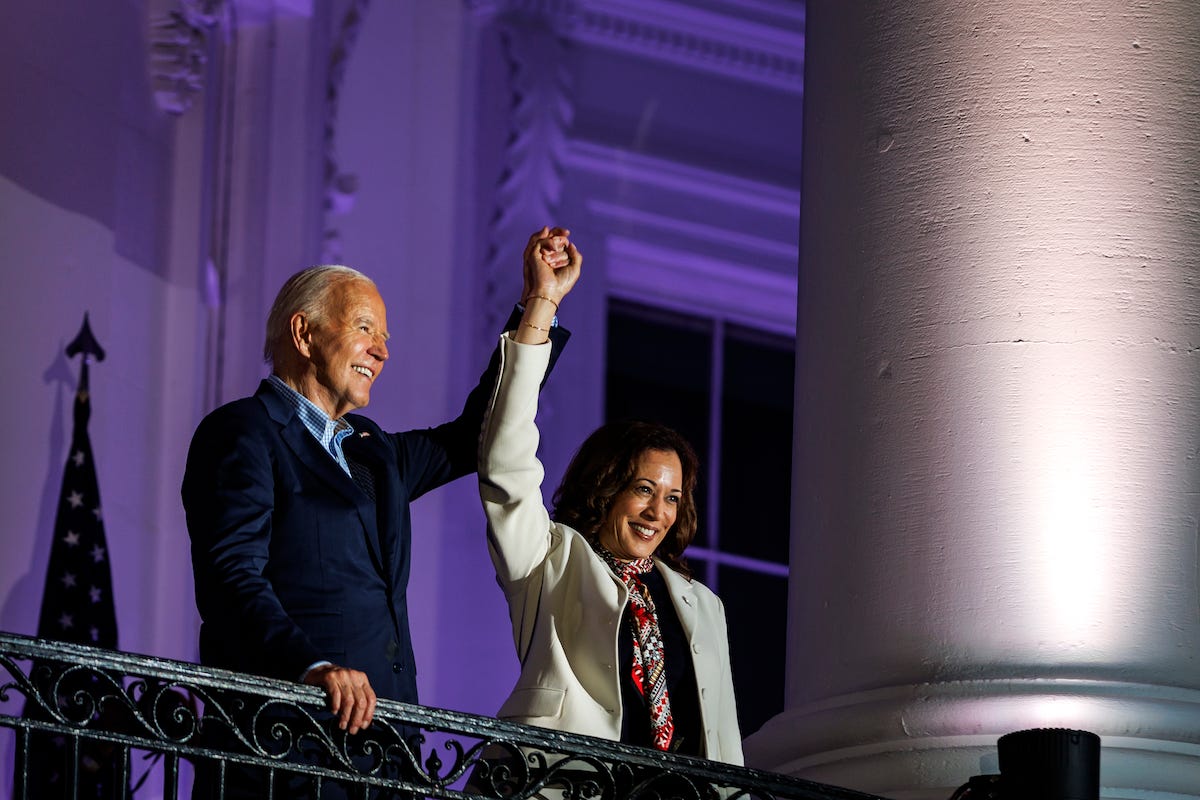A Methodical Approach To The Democratic Succession Crisis
In a void of important information, half-baked ideas are flourishing. This is a complicated decision, and only Joe Biden can make it.
The existential crisis of confidence in President Biden’s ability to campaign vigorously for re-election (to say nothing of actually defeating Donald Trump) has plunged liberals and Democrats into bitter disagreement with one another over what should happen next, when, and how.
Most of these disagreements are substantive and driven by a shared sense of dread that Trump will return to power. Everyone’s casting about for a solution that minimizes his viability. But the dissension is also fueled by a dearth of public information, and a widespread tendency to oversimplify what is, in fact, a surprisingly complicated decision.
Here’s is how I break it down in my own mind:
Biden now polls meaningfully behind credible alternates.
A bunch of recent history, and many logical inferences, suggest swapping out an unpopular incumbent with a more popular incumbent will give the incumbent party a boost larger than the delta in public approval between two leaders.
Thus, Biden should overcome his troubling RBG-like stubbornness and choose to suspend his campaign.
(Spoiler) I probably think this means he should yield to Vice President Kamala Harris, but this is where things get thorny, and it becomes really hard to know what the optimum is. It’s particularly hard for the huge number of people with strong feelings about what’s happening, but who lack critical details. I include myself and just about every working journalist and commentator in this group.
Thus, I don’t take a firm view on exactly how the succession should go. American politics, with all of its needless complexity and inertia, creates many situations like this, where the most important thing is that something happen, followed distantly by how it should happen. Something should happen to make sure all Americans have health insurance; whether we accomplish that with radical or piecemeal reforms is less important. Something should happen to put more downward pressure on U.S. climate emissions, whether that takes the form of a tax or an auction is less important. This is somewhat like that: Doing nothing is the worst option.
Assuming Biden has merely lost his rhetorical faculties, not his decision-making ones, the process should be his call, and he should ask the party to honor his final wishes as its leader. He should weigh the costs and benefits of different ideas, and treat this decision like a presidential one: It’s nominally a matter of campaign politics, but at bottom it is about the future of America and the world.
NO TIME TO BIDEN
Why is it so complicated? Part of it is that there’s tons of information known only to a handful of insiders. So, so much of the commentary about this dilemma waves complexity away and treats all options equally. For instance:


